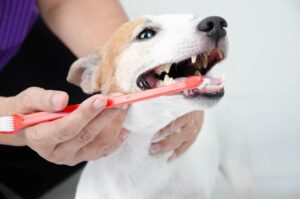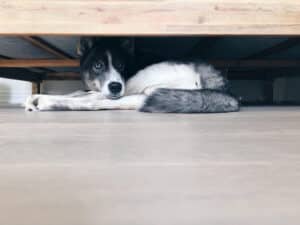It’s common knowledge that dogs have brown eyes. Some dogs, like Australian Shepherds or Huskies will have blue ones. But on average, all dogs have brown eyes. And they’re quite pretty too. My dad never liked to admit it, but once or twice we’d catch him singing Van Morrison’s “Brown Eyed Girl” to my dog whenever the song was on the radio. She, like many other dogs, had adorable brown eyes. But there are occasions when nature will take over and give our dogs something really special. On rare occasions, you’ll find dogs who have both blue and brown eyes together.
Not only are these really pretty combinations, but they’re also rare. The condition that causes one eye to be blue and one eye to be brown is a condition known as heterochromia. The two-toned eyes can occur in both humans as well as canines. But it doesn’t just stop there. Cats can have it too, as well as some horses. Who would’ve known? The disorder is inherited from both the mother and the father. Most of the time heterochromia is an inherited genetic occurrence, but occasionally it can be a result of an injury. If your dog sustains an injury to their eye, or they develop a disease of the eye, they can sometimes experience a change in their eye color. But it’s really rare and heterochromia is usually the main cause for two different eye colors.
Heterochromia can happen in any dog, but there are breeds that tend to have a higher rate of it happening than others. Some of these breeds who are more likely to have two different eye colors are Australian Shepherds, Catahoula Leopard Dogs, Great Danes, Dalmatians, and Huskies. However, when Dalmatians have one or two blue eyes it could actually be a result of them being deaf as well – for some reason blue eyes in these dogs are linked to deafness in the breed.
While two-toned eyes are certainly striking, there is no need to be alarmed. The condition is genetic and there is generally no need to worry. But dogs with heterochromia might also be linked to glaucoma, so if you suspect that there might be something wrong, definitely talk to your vet about all concerns.
Does your dog have heterochromia? Let us know!











